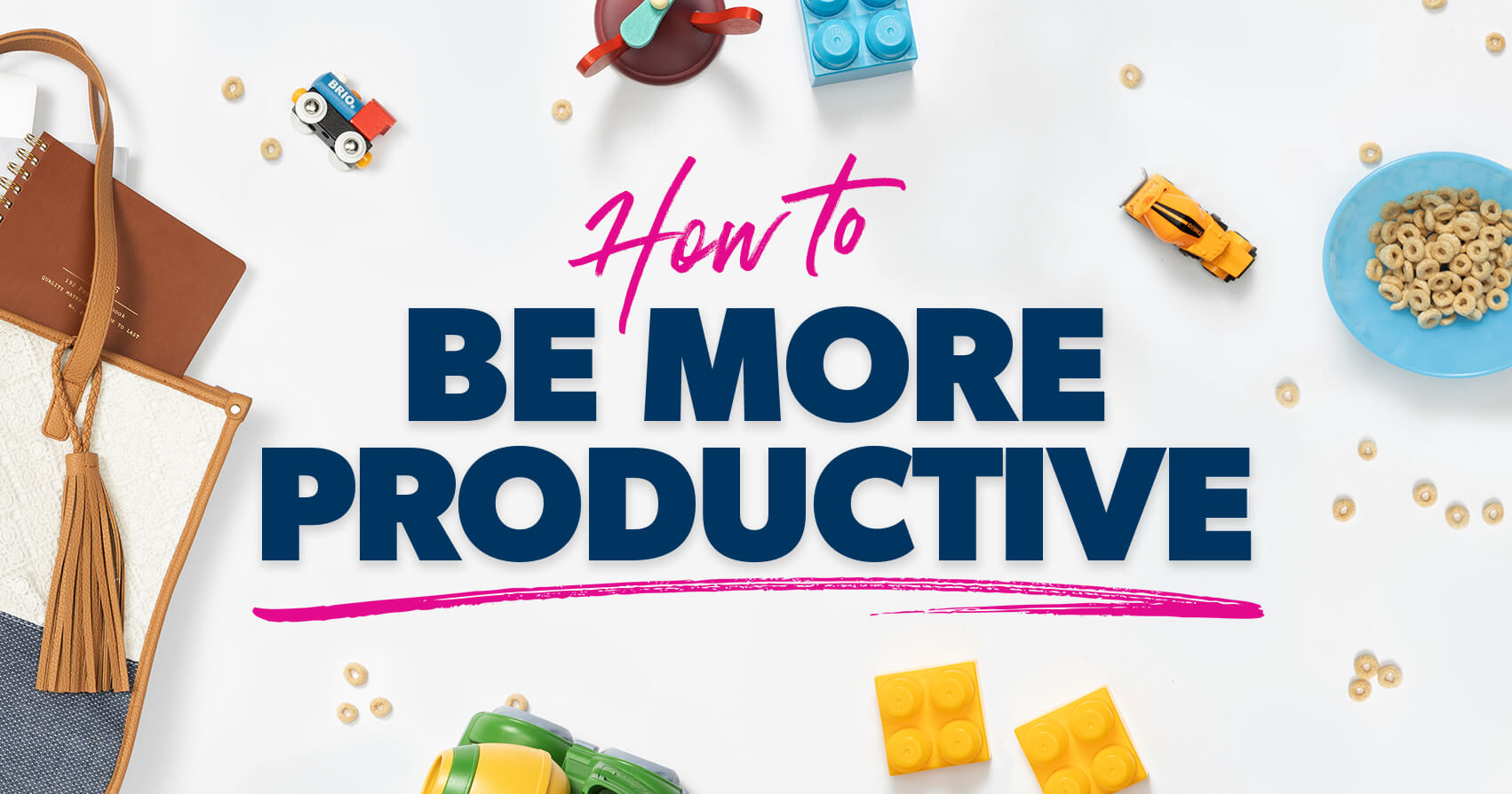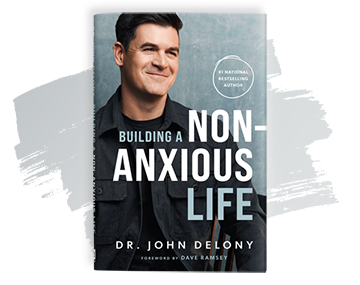How to Be More Productive: 7 Tips
9 Min Read | May 6, 2024

Have you ever driven home from work feeling tired but also not having any idea what you accomplished during the day? Have you ever gotten to the end of the week with a to-do list that isn’t much smaller than it was on Monday? Ever set a goal that you really cared about, but you struggled to make progress?
Yep, we’ve all been there. Truth is, everyone wishes they could be more organized and productive at some point. We all have tasks we want to check off our to-do lists, work we want to get done, and goals we want to reach—and productivity is the key to getting there.
So, let’s go over seven tried and true tips for how to be more productive at work, at home or anywhere else you go in life.
How to Be More Productive: 7 Tips
1. Set your priorities before you start working.
The first step to being more productive is setting your priorities before you begin working. Start by making a simple to-do list of all the tasks you want to accomplish. Then, organize those tasks into three categories:
- Things that need to be done today
- Things that should be done very soon
- Things that are good ideas but can wait
Once you’ve divided your to-do list into those groups, you’ll be able to see which tasks are the most important—so you’ll know exactly where to start when you get to work. You’ll also know what to do next when you knock out that first task.
Setting your priorities not only keeps you focused while you’re working but also ensures you’re focused on the right things. That’s a big deal because true productivity isn’t just about getting stuff done—it’s about getting the right stuff done.
In fact, some experts even say that by spending 15–20 minutes every morning preparing your day with a prioritized to-do list, you’ll be 1–2 hours more productive. Sounds like a pretty good deal, huh?
2. Get rid of tasks that don’t matter.
What if there’s a task on your to-do list that doesn’t fall into one of those three categories? Well, chances are, you need to get rid of it. Because if something on your to-do list doesn’t even fit the description of “a good idea that can wait,” it probably doesn’t matter a whole lot.
See, we all have important things on our plates that need to get done. And with limited time to accomplish those things, it’s crucial that we don’t waste time on stuff that isn’t going to help us be productive. So, once you’ve prioritized your to-do list, get rid of the stuff that doesn’t matter. That way, you can spend more time on the things that do.
Finishing that big project at work ahead of the deadline? Important. Buying groceries for the week so you can eat? Important. Organizing your paper clips? Not so much.
3. Schedule your work.
At this point, you have a list of the important tasks you want to knock out and you’ve gotten rid of the not-so-important tasks. Now it’s time to plan out when you’re going to get the stuff done.
Start by asking yourself some key questions like: “What do I want to focus on this morning? What work do I want to finish up after lunch? How long will all of that take?” Then, sit down and plan out your day. Make a schedule and add as much detail as you want.
You may not wind up following the plan exactly as you write it out, but that’s A-OK. Simply having a plan to help you focus your mind and your time will put you way ahead of the game.
4. Cut out distractions.
Maybe you’ve been here before: You’re hard at work on something important, in the zone, completely focused when . . . DING! You get an email. You stop to check the email and realize it was just a link to a YouTube video from your friend Jon. But, of course, you have to watch the video. So you click the link and watch it. And then, one of the recommended videos in the sidebar looks interesting, so you watch that one too. Then another one. And another one.
Want to build a non-anxious life? Learn how in Dr. John Delony’s new book.
Suddenly, you’ve been watching YouTube videos for 20 minutes, and all that momentum you’d built on your work is totally gone. No more focus. Definitely not in the zone anymore.
Of course you’ve been there—because all of us have! It’s so easy to fall into internet rabbit holes and other major distractions. But that’s why it’s super important to cut out distractions before you start working if you want to be productive.
If you cut out the distractions beforehand, you’ll give yourself a much better chance of staying focused and on-task. So silence that ding on your laptop. Leave your phone in another room. Turn Jon on “Do Not Disturb.” Whatever you need to do to eliminate the potential for distractions, get it done.
5. Go to bed earlier and wake up earlier.
Ever feel like there’s just not enough time in the day? You wake up in the morning, start knocking out your to-do list, and before you know it, it’s time to clock out of work, make dinner, or pick up the kids—and you feel like you barely even got started on the important tasks you planned to complete.
Wouldn’t it be nice if there was a way to add even just one more hour to your day? Well, good news—there is! To add more time to your day, wake up earlier. Yep, it really is that simple. Setting your alarm for 6 a.m. instead of 7 a.m. instantly adds an hour to your day, and that extra hour could go a long way, over time, in helping you be more productive and work toward your goals.
But don’t just wake up earlier—go to sleep earlier too. Sleep is super important, and sacrificing it to gain an extra hour in your day won’t help you very much. Sure, you’ll have an extra hour to work with, but you’ll also be a lot more tired. Sleeping less will make you less productive—because sleep is like a giant reset for our brains, and we need it!
So, if you decide to add an hour to your day by getting out of bed a little earlier, you should get into bed earlier as well. Yes, that will technically cut an hour out of your evening, but most of us waste a ton of time at night by scrolling through TikTok and binge-watching Breaking Bad. Instead of all that, move up your morning alarm, then put the phone down and go to sleep.
6. Focus on one thing at a time.
A lot of us love trying to do more than one thing at a time, but there’s a problem with multitasking: It doesn’t work!
Over the last several years, plenty of research has shown that multitasking is a major productivity killer. A 2018 study showed that multitasking caused college students’ GPAs and test performances to drop.1 Another study found that doctors who multitasked while writing prescriptions made a ridiculous number of errors.2 And in 2013, a group of researchers discovered that multitasking online can increase anxiety and feelings of sadness.3
Moral of the story? If you want to be more productive, trying to do more than one thing at once isn’t the answer. Multitasking isn’t what the pros do—it’s what unproductive people who make lots of mistakes do.
Instead, focus on one thing at a time. Yes, that can be really hard in today’s culture, where it’s challenging to pay attention to anything for more than five seconds. But that ability to hunker down and focus is what separates successful people from others who wish they were successful.
So don’t try to write your sales report while ordering groceries and paying your rent for the month. All those things are important, but you won’t do them well (if you even finish them at all) by trying to do them all at once.
7. Create more margin in your schedule.
Our final tip for being more productive is going to sound a little weird: You need to create more margin in your schedule by intentionally devoting time to rest. Wait, how does spending less time working help me with productivity? Yep, we hear you.
Here’s the thing: When you don’t give yourself margin in your schedule, you wind up walking through life like a zombie—tired, overwhelmed and stressed out. But when you flip the script and allow yourself a healthy amount of time to rest, you’ll be in a much better place when you do sit down to work—meaning you can bring the best version of yourself to whatever task you’re trying to accomplish.
That’s how creating more margin in your schedule helps you be more productive. When you give yourself margin to rest with your family at home, you’ll be freer to give your best to your work. So don’t try to cram more into your schedule than you can comfortably hold—start saying no to some things that aren’t that important, create some space, and enjoy the results.
Committing to keeping margin in your calendar will do more than just help you be more productive, though—it will also help you fight back against anxiety and live an overall more joyful life. Dr. John Delony explains exactly how that works in his new book, Building a Non-Anxious Life.
Not only does John discuss how choosing freedom with your time helps to keep your body from sounding the anxiety alarms, but he also lays out a clear plan to intentionally position yourself to be resilient in the face of adversity. The plan is called the Six Daily Choices, and making those six choices day by day will help you embrace peace and push anxiety away from your life.
Want to Build a Non-Anxious Life?
For guidance on making the daily choices that will help you be well, check out Dr. John Delony’s new book.



